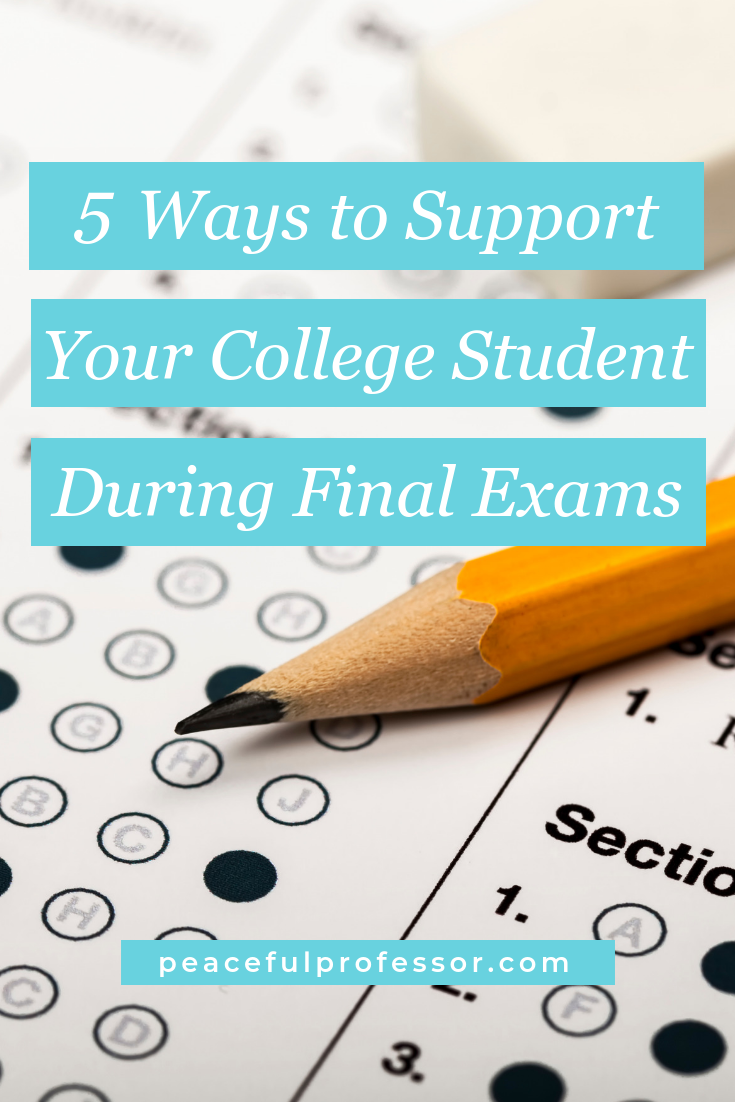The Complete Guide to Your Freshman Year of College
Transitioning from the structure and predictability of high school to the stressful, unfamiliar world of college can cause panic in both young adults and their parents. But have no fear! Sara Pennington from Segue to College has the ultimate guide to see you through this challenging time. I had the opportunity to interview Sara about her new book, The Complete Guide to Your Freshman Year of College, in which she reveals the very best tips and tricks for smoothly transitioning into college life.

Imposter Syndrome and Loneliness
Jessica: What are some of the challenges that students frequently encounter as a college freshman?
Sara: I think one of the big things, initially, is feeling like you don’t belong at college. You kind of feel like a visitor. I very distinctly have a memory of walking from the dining area back to my dorm by myself and thinking, “I don’t feel like I should be here. I feel like it was a mistake I got in.” And I think that’s pretty normal. But I don’t think we talk about that a lot and I think we should talk about it.
This relates to student imposter syndrome, which is the idea of having a complete lack of self confidence about your abilities, doubting why you’re there, and feeling like you should just give up because you don’t belong.
I think this is a big deal because within that first month or so, you make habits as a freshman that can completely change your college career. You make choices about how you spend your time and what things are going to be important to you. Combating that imposter syndrome mindset with, “it’s okay to feel this way” is important. It’s okay to feel like I don’t belong because you know what? I’m in a different stage of my adult life, and it’s going to be awkward and uncomfortable, but it’s okay to feel this way.
Along with imposter syndrome is loneliness. I don’t think that most high schoolers realize how lonely they’re going to feel as a college freshman. Sometimes students have this idea that college will be the best time of their lives and they’re going to make friends for the rest of their life and it’s going to be incredible. And it is going to be an incredible experience. However, I think putting the pressure on students to think that this is going to be the best time of their life leads to imposter syndrome and loneliness because they get there and think, “this is it? There’s nothing to do, I don’t know anyone, and I don’t have any money.” So they feel disappointed, like they have failed somehow. Those are two things that I think students experience that they maybe didn’t expect to feel.
Jessica: I think that’s a really excellent point. How often in pop culture and from family and friends do young people hear “these are going to be the best four years of your life”? I think we set students up for that expectation, and it sets the bar really high.
And there’s always that social comparison as well. They may look around their campus or see their friends at other schools on Facebook and think, “everybody else has it together and they’re having the time of their lives. And I’m in my dorm room missing my family and feeling like I don’t belong here.” And that can lead to a lot of mental health issues down the road. We need to warn students more about those less than ideal, uncomfortable feelings that they’re going to have, which they may not have experienced in high school or ever before, maybe.
Homesickness
Jessica: What advice would you give a college freshman who’s feeling particularly homesick or lonely or like they don’t fit in? Are there things that they can do to alleviate some of those feelings?
Sara: Yes! And this depends on how close they live to home. Some students go far away, maybe even on purpose, from where they live. While other students are within a few hours or less. So, that can change what their choices are. I’ll first address students who live close enough for a day trip to go home. I know that some people are going to disagree with me, but going home often makes your homesickness much worse because you’re home a lot and you’re at school lot and you’re not fitting in in either place. And that is a worse feeling than just being homesick. So if you live close to home, I would encourage you to go home once a month at the most. This will help you transition and help you finally feel like somewhere is home.
For students who live far away, the big thing is calling home. If you call home a lot and you’re homesick, be really careful that you are allowing yourself to develop the adult skills that you really should develop in college. If you call home for advice for little things, you can actually hurt your college experience. It’s easier to call home when you can’t remember “how do I wash this?” or “what do I do about this?” or “how do I talk to my roommate?” It’s easier to call home about those things. But sometimes, struggling and failing is a very good process to go through if you’re going to develop the skills that you’ll need as an adult after college.
So I think those are the two big areas: visiting home and calling home. If you’re homesick, you may be hurting yourself and making your problem worse by calling home too frequently or going home too frequently.
Jessica: That’s good advice because, logically, a lot of people would say, “if you’re homesick, call home.” But I think you’re absolutely right that done with too much frequency, it doesn’t allow you to push yourself outside your comfort zone and stick around on the weekends when maybe your college is having events for freshmen or events for the whole campus that you could participate in and make some connections. If you’re going home, you’re going to miss out on all that stuff.

The First Weekend on Campus
Jessica: Along those lines, what mistakes do you see college freshmen making when they start their first year?
Sara: I have older siblings and they were really great sharing advice with me when I went to college. One of the best pieces of advice I ever received was from my brother. He said a lot of people during the first weekend they’re in college spend that time hanging out with friends or going to parties or events. They end up getting behind because when Sunday night comes, they’re scrambling to get work done for Monday morning. So I would say one of the biggest mistakes that students make when they first get to college is not staying on top of stuff from the beginning.
If you start the semester by turning in the very first assignment late, or maybe it’s incomplete or done very poorly, you are setting yourself up to have a rough semester. Not to say that you couldn’t improve and you couldn’t get back on top of things because you probably could, but it takes a lot of work. You’re setting patterns for yourself that you are going to imitate the rest of the semester. So if you spend most of the time your first weekend socializing and very little time doing any school work, you’re setting yourself up to be behind. It can’t hurt to be ahead at the beginning of the school year, because it leaves you some wiggle room if something happens such as getting sick or a family emergency.
Choosing a Major
Jessica: With regard to choosing a major, many students and their parents put a lot of pressure on making this decision freshman year. What are your thoughts about the importance of picking a major and making sure it’s the “perfect” major for you?
Sara: It is important and it isn’t important. It’s kind of a double-edged sword. It is important in the sense that college is very expensive. When you think about how much college costs, that’s the price of a very expensive car or a small house, depending on where you go. If you think of it in those terms, it’s a big investment. So when you go to college, you want to be careful that you are not wasting your time. We’ve all met the “perpetual college major changer,” if that can be a title. It seems like every semester they change their major, and that’s not where you want to be. So in that regard, deciding on a major is important.
However, I do think that sometimes there’s way too much pressure on picking the right major. I firmly believe that students usually do not know what they love before they go to college because the way you figure out you enjoy something is that you are actually doing it, you’ve experienced it. And most of the time before you go to college, the most you’ll do is shadow someone or maybe go to a booth on career day at your high school. So you don’t really know what you love because your experiences have been so limited.
I think that we as parents or as teachers, even as students, we need to be careful that we’re not putting this pressure to “pursue what you love” or “do what you love.” I think that kind of advice can be really misleading because, as a high school student, you don’t know yet what you love. You’re just doing stuff, and it’s by doing stuff that you had no idea would be helpful in the future, that you end up where you are today.
I think of myself — I was a music major, so the idea that I would become a Communication instructor is kind of laughable to me. I didn’t imagine myself where I am, but several experiences along the way developed these skills and this experience that made me realize I enjoy helping people to learn. So be very careful that you are not choosing a major based on what you love right now, because that can change and it probably will change.
Jessica: That’s great advice. I think this pressure is a hold-over from decades ago when there were only so many majors in higher education, and that major was tied to what your future career would be. There are still cases like that, like engineering or education. But the jobs, the careers, that these kids are going to have in the future, some of them don’t even exist yet. One of the beauties of liberal arts education in particular is that it encourages students to experiment and to take courses that they never had in high school. I think we put a lot of pressure on 17 and 18 year olds to figure out what they’re going to do when they’re 25 or 30.
Sara: Right. And it can really cause a lot of decision paralysis because they think, “my major determines the rest of my life and I’m 18. How am I supposed to make that kind of a choice now?” Well, the reality is, they can’t make that choice now.
Parents: Letting Go and Setting Expectations
Jessica: Your book is written to students, so you’re talking to the incoming college freshman, but do you have any advice for parents? What they can do to help their student during this challenging transition from high school to college?
Sara: I think one of the biggest questions that parents should ask themselves is, “what am I not willing to do to help my freshman succeed?” When there are issues between the parent and child, very few times are parents under-involved. It’s mostly the other way around, in my experience. It can be very hard for parents to let go and understandably so. I’m not a parent, but I can imagine that it is very difficult to let go when you know that your child is making mistakes that will have some painful consequences.
As a parent, you love your child and you want your child to succeed. However, parents have to be willing to step back, even when it’s painful to watch, and allow their child to go through these growing pains. Because there will be some. They will be hard to watch. They will be hard to listen to. And you might feel heartless. You might feel insensitive or like you’re failing as a parent, but a lot of the college experience is learning by making mistakes.
So as a parent, consider what you’re not willing to do to help your child succeed, whether that means not calling as much or not being in contact as much. Whether that means taking the responsibility for their grades and passing it on to them. Hopefully, that’s happened some in high school, but that is a big one. I think sometimes parents have this idea that because their child got a 4.0 in high school that they’ll be able to do that in college. And while sometimes that is the case, it’s usually not the norm.
College classes can be more difficult, but the biggest key is that they’re juggling multiple things. They’re not just juggling one or two things, now they have like seven, and they only have two hands, and they’ve never learned how to juggle. So they’re learning this for themselves. And by constantly asking “are you getting enough sleep?” “Are you eating?” “How are your grades?” it could make your freshman feel like you don’t have respect for them. That you don’t have respect that they can do this on their own. They might even think, “my parents don’t even believe that I can do this. Who am I to think that I can do this?” So just be really careful about those boundaries.
And the other advice I would give is to communicate what you expect. Do you expect your child to call you once every day? Do you expect your child to come home every break? A lot of times we don’t communicate that and when your child doesn’t meet those expectations, you’re incredibly disappointed. But your child didn’t know you had those expectations. And while you might feel like they’re understood expectations, you have to be careful that you communicate that because sometimes your freshman can miss those things.
Jessica: I’m not a parent either, so while we may not have that understanding, we’ve seen these issues as instructors. It really adds another layer of stress to the student who’s already stressed out about 12 different things. If they’re also having to worry about what mom or dad is thinking about them, or worrying about them, that adds extra stress and pressure to the student.
And I think it’s really interesting what you said about students thinking, “if mom and dad are constantly checking on me and swooping in to solve problems for me while I’m at school, maybe they don’t believe that I can do it.” That could become a self-fulfilling prophecy. Parents want to protect their kids and they want their kids to be safe and successful and happy. But I don’t think a lot of them consider, “am I communicating that I don’t believe in my child’s capabilities?” That’s really powerful.

Stress and Overwhelm
Jessica: What advice would you give to a college freshman who is feeling really stressed and overwhelmed their first semester?
Sara: First of all, I would say it’s normal to feel stressed and there’s nothing wrong with you. I have many memories of, as a music major, sitting in a practice room and just sobbing because I felt so overwhelmed. I look back and I laugh at myself a little bit. It’s important to keep a realistic perspective. It can be very easy to get upset and emotionally invested in little mistakes. Be really careful not to build things up in your mind that aren’t a big deal.
So, for example, maybe you went to class and you forgot there was a quiz, and you’re beating yourself up mentally — “I can’t believe I did that. What an idiot. Why am I even at college if I can’t keep track of things like this?” It’s easy to beat yourself up and to dwell on it. But that’s wasting a lot of time and energy. Instead, you should be thinking, “Okay, that was not smart. I should have known that, but mistakes happen sometimes. What can I do so that it doesn’t happen again?”
Another thing is to make sure that you are organized. I will never forget one year in college, I walked in on my roommate crying. She was so overwhelmed because she had strewn across her bed all these syllabi and she told me, “I’ve never used a planner before.” I was, first of all, shocked because I wondered how she had gotten this far and not used a planner. And I was not surprised she was crying because I probably would be, too, if I was trying to keep track of all my assignments based on pieces of paper that aren’t combined into one notebook.
If you aren’t organized, you are going to be stressed, that is an almost 100% guarantee. So while you may be able to remember something later without writing it down, just go ahead and write it down, whether it’s on your computer, on your phone, wherever, write it down so that you don’t have to keep track of it throughout the whole day. Because that will add stress in your day. So my advice is to keep a realistic perspective and get organized.
Advice for Your Younger Self
Jessica: Excellent advice. I’d like to wrap up with a slightly more personal question. If you could go back in time and talk to yourself as a college freshman, what advice would you give her?
Sara: To not get so obsessed over little mistakes. This is something I’m still learning. I tend to be a perfectionist, and I can let little things ruin my day. So I’d tell myself to remember, “this is just one mistake and I’m not perfect and that’s good because if I was perfect, I wouldn’t be learning.”
And then the other thing is, and this goes along with my tendency to be a perfectionist, don’t be so obsessed with getting all A’s. It can be very difficult for a student who’s used to getting A’s in high school to go to college and get a C or B or, even worse, a D. You feel incredibly demoralized. You feel like a loser and like there’s something wrong with you. But one of the biggest adjustments for students and parents is that “average” in college is a C. And for an A student, that’s a difficult thing to wrestle with. So you have to adjust your mindset.
For some reason, my first semester at college, I was obsessed with getting a 4.0. I had no social life. I was a nerd for sure. I stressed about it so much and I wish I could go back to myself and say, “your grades need to be good, but they don’t need to be perfect, and you need to stop stressing out. It’s okay to get B’s, even an occasional C. Do your best and that’s all you can do, you can’t do any more than your best.” So those are probably the biggest things that I wish I could go back and shake my own shoulders and say “hey, listen to me!”
Jessica: I understand that. I, too, am a perfectionist. And I think a lot of students are. Many students had an easy high school experience and they were able to get a 4.0 without a lot of effort. So when they come to college, it’s truly a shock to them how challenging some of the intellectual work is. I’m often surprised by how many students tell me, “I never had to study in high school. And now I feel like that’s all I do is study.” There’s definitely a culture shock in that transition from high school to college for a lot of students.
So I think that’s excellent advice. Give yourself a break from time to time, try your hardest, and use the resources that are on campus to help you. Most colleges have writing centers, tutoring, professors’ office hours, and other resources which help students get the support they need to do their best.
Did you enjoy this excerpt from my interview with Sara? Well, this post is just the tip of the iceberg! To get even more fantastic advice, check out Sara’s book The Complete Guide to Your Freshman Year of College and her blog Segue to College.


